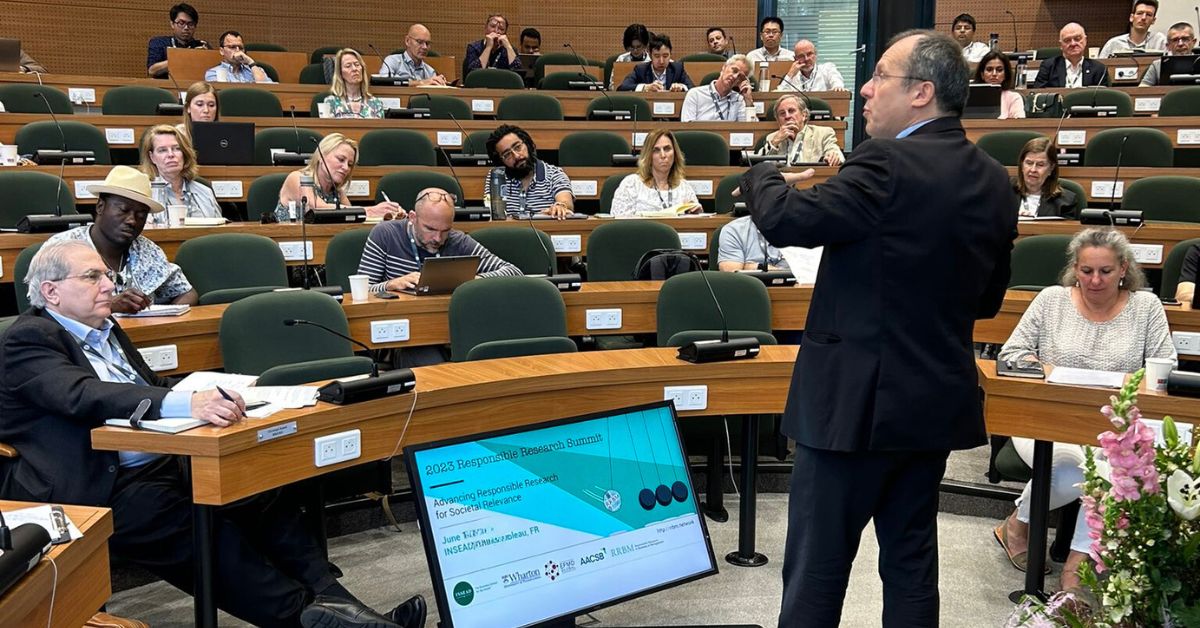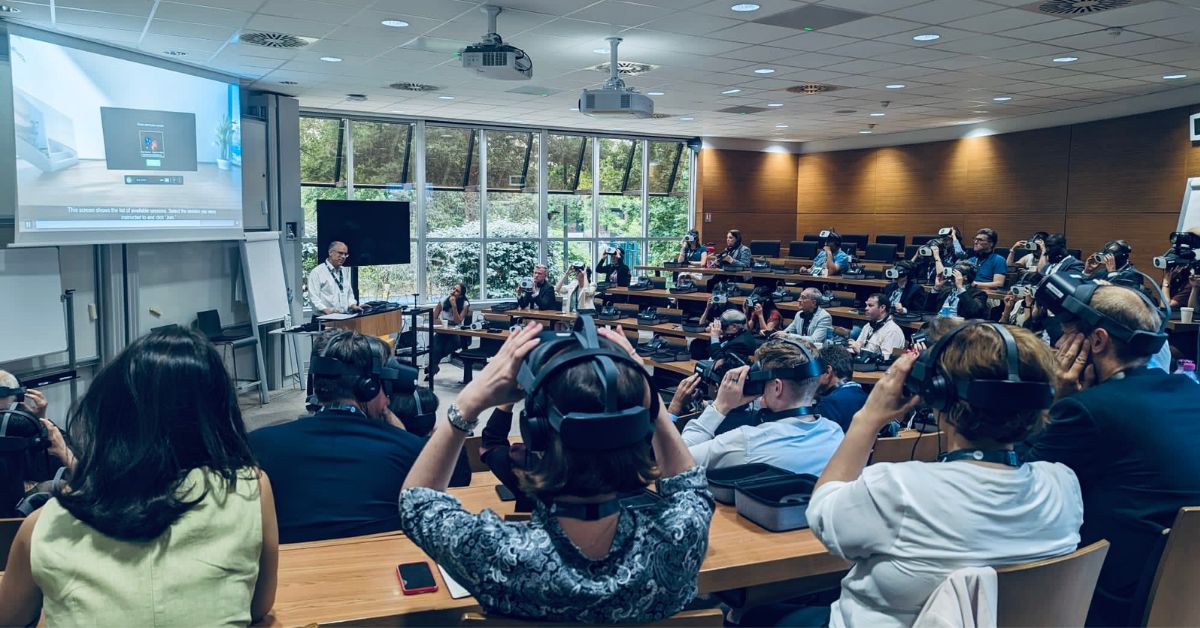DUBAI, UAE — In the ever-evolving landscape of business and technology, executive education has gained significant momentum, especially in the Gulf Cooperation Council (GCC).
In the GCC, the drive towards economic diversification, particularly seen in countries like Saudi Arabia, has increased the demand for executive development. This has led to a booming market for executive education, which is now worth billions worldwide, said an expert.
INSEAD, the leading business school with a campus in the UAE, has experienced a surge in revenues this year, primarily driven by company-specific programs, highlighted Peter Zemsky, Deputy Dean and head of INSEAD UAE campus, in an interview with TRENDS.
Zemsky explained that executive education, divided into company-specific programs and open enrolment programs, has gained relevance due to the rapid proliferation of trends in business and technology.
These trends span geopolitics, macroeconomic issues, and advancements in technologies like generative AI and Virtual Reality (VR), he said.
As with other sectors, advancements in technology are transforming education, altering what is taught, who is taught, and how it is done. INSEAD, for instance, has established a global centre of excellence for VR case studies at its Abu Dhabi campus, with these resources distributed globally.

Zemsky highlighted that VR offers a transformative experience for learners, allowing them to virtually step into the shoes of a CEO, directly experiencing and negotiating complex business scenarios. This interactive VR experience provides a more engaging and realistic perspective on management education compared to traditional case studies.
Furthermore, generative AI is a relatively new tool in INSEAD’s educational arsenal. Zemsky elaborated that this technology allows for immersive simulations and role-play, with AI-trained characters providing interactive responses to students’ actions. He believes this approach fosters a safe environment for learners to experiment, learn new behaviours, and then apply them in their professional lives.
About Executive Education * Executive education in the GCC region is designed to help institutions and executives realize their full potential by introducing integrated, customized capacity-building solutions. * The programs are conducted over 2-5 days, which are designed to equip executives with the skills and knowledge essential to achieve both individual and institutional excellence. Trends * The executive education trends for 2023 indicate a significant shift towards application-based learning, which ensures that teachings are not merely theoretical or conceptual but have real-world applicability in the immediate and near future. * The learning structure of these programs has also adapted to the post-pandemic world with the rise of hybrid learning, a combination of online and offline classes. * This format not only facilitates in-person interaction with faculty and subject matter experts but also leverages the vast knowledge available through online resources, making it a feasible option for working professionals. *The importance of innovation and cultivating an innovative culture is also being emphasized in executive education, with the aim to drive professional growth. * The programs have put mechanisms in place to encourage engagement among learners, through methods like peer competition, point scoring, teamwork, and score tables. * They also focus on developing management and leadership skills, recognizing the need for empathetic leaders and managers in the current market.
Addressing the needs of the modern learner, Zemsky stated that students are seeking practical insights to tackle real-world challenges.
“They require robust frameworks, concepts, and approaches that they can apply to current issues, such as sustainability and agile product innovation. To facilitate this, INSEAD has created one of the world’s largest libraries of VR cases, with 20 different experiences, providing students with a realistic context to apply their learning,” he added.
According to Zemsky, business education is crucial in helping organizations develop strategic solutions. “Leaders must be able to assess different opportunities, set directions, and create a context where middle-management can deliver what is required. The role of education in equipping leaders with the tools to guide their organizations amidst rapid technological changes is therefore pivotal,” he said.
Zemsky also pointed out the opportunity that this technological transformation presents for educators. He emphasized the need for education managers to identify opportunities and develop innovative solutions for the companies they serve. “The rapid pace of change necessitates a continuous upskilling of employees, fostering a growth mindset and promoting a culture of learning,” he pointed out.

